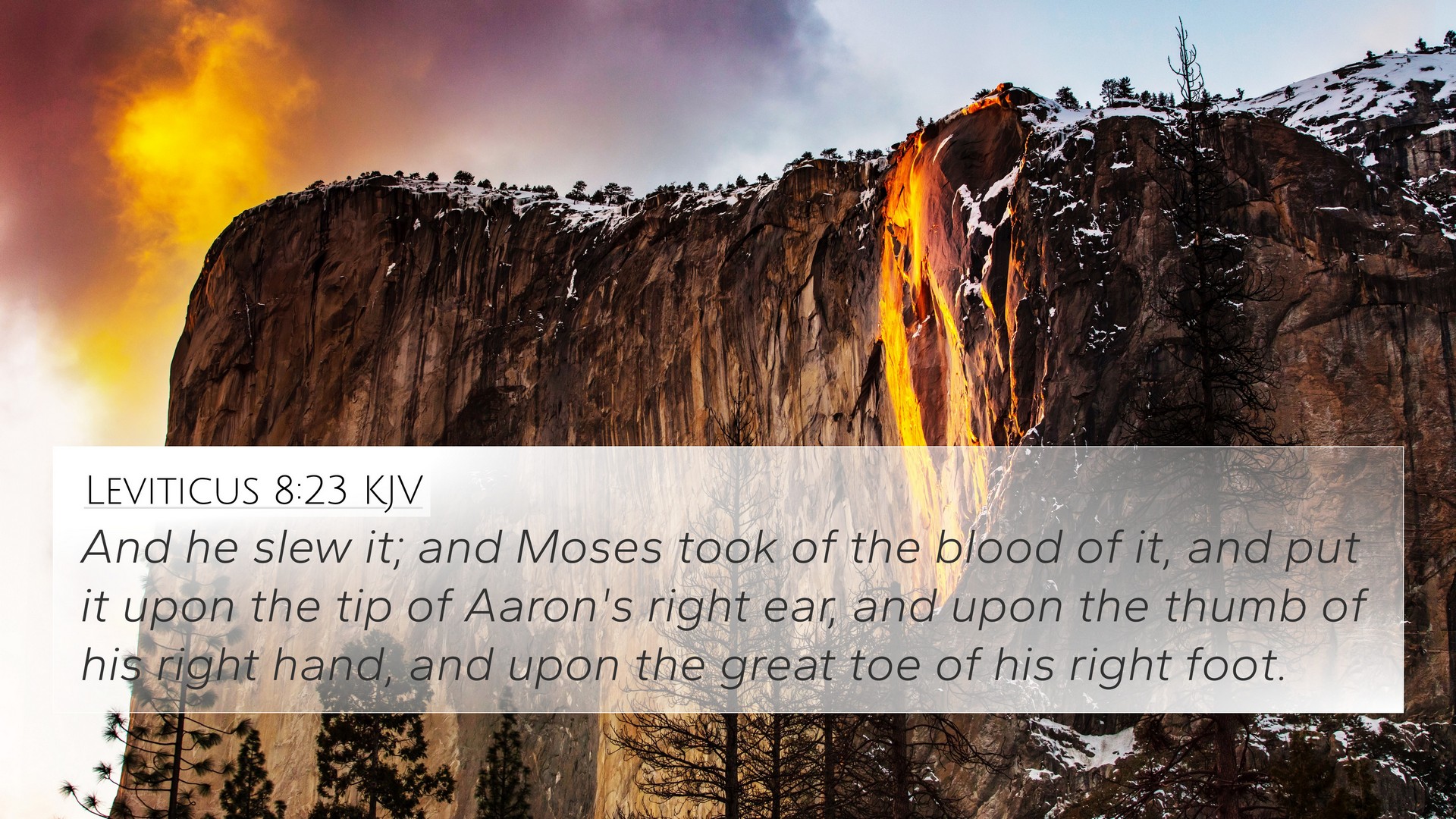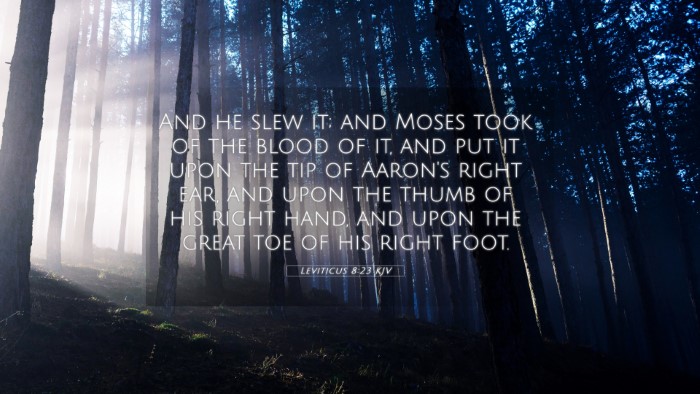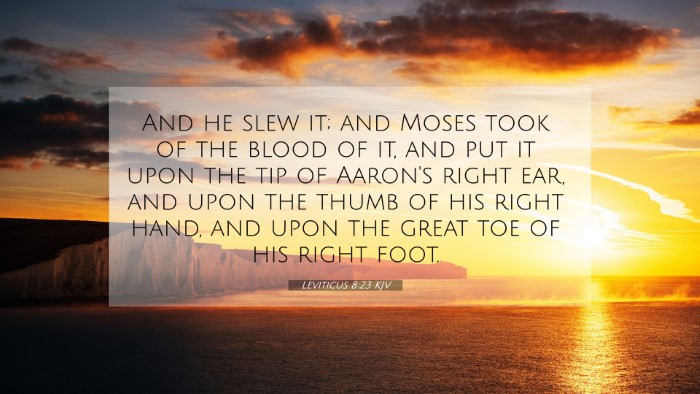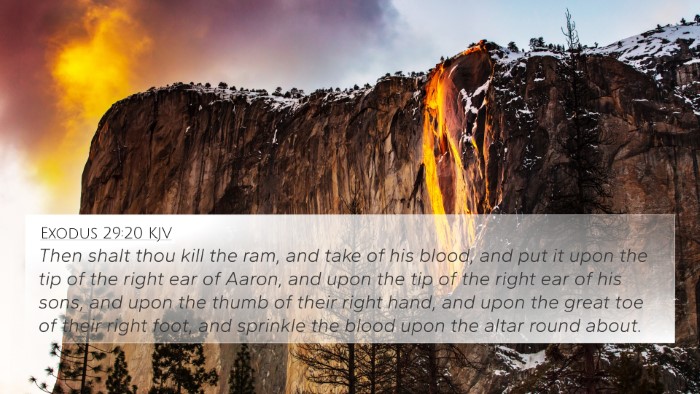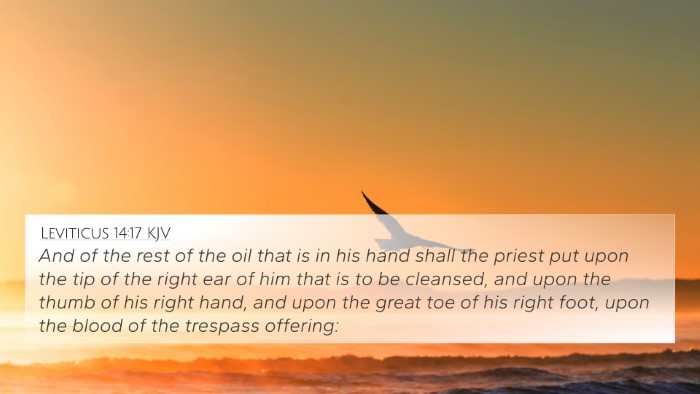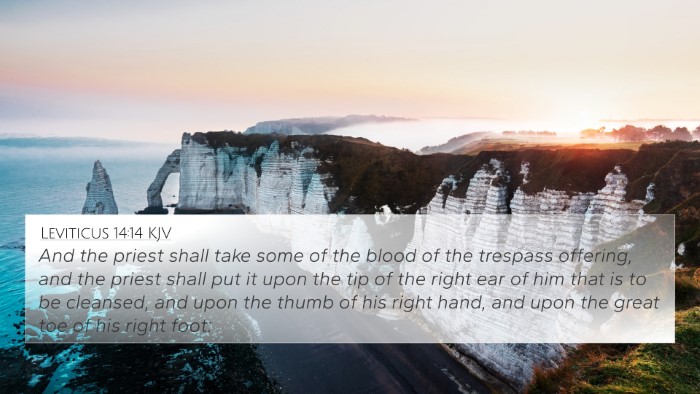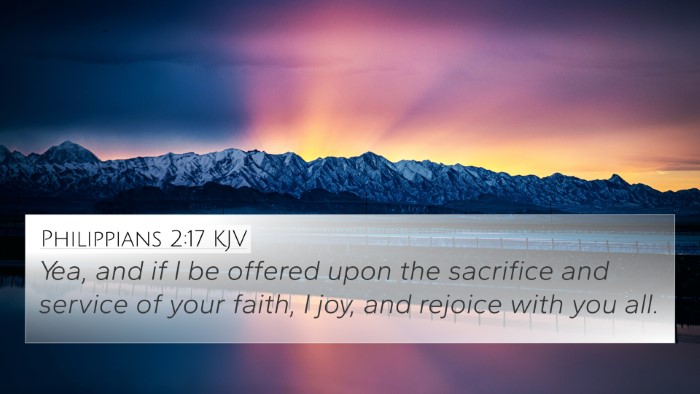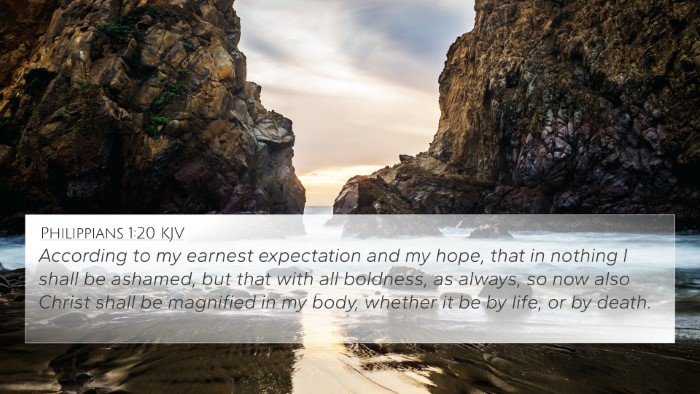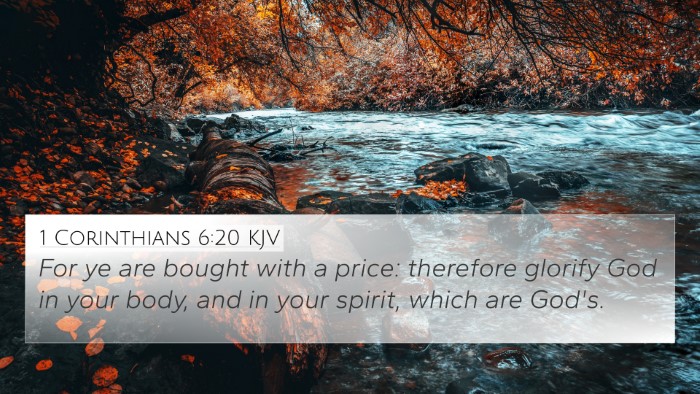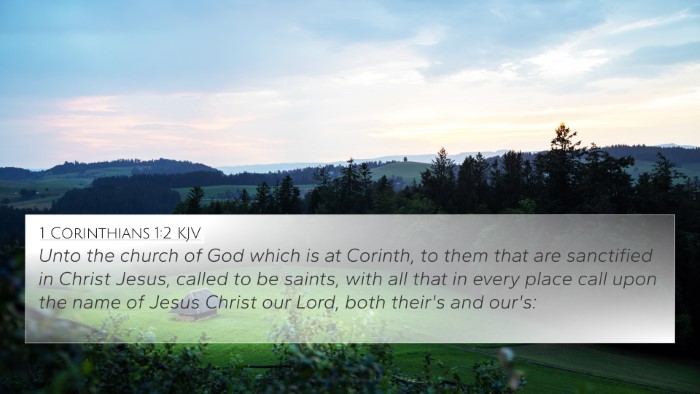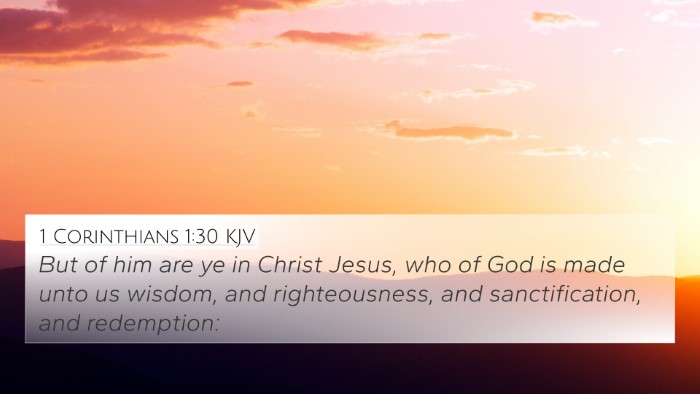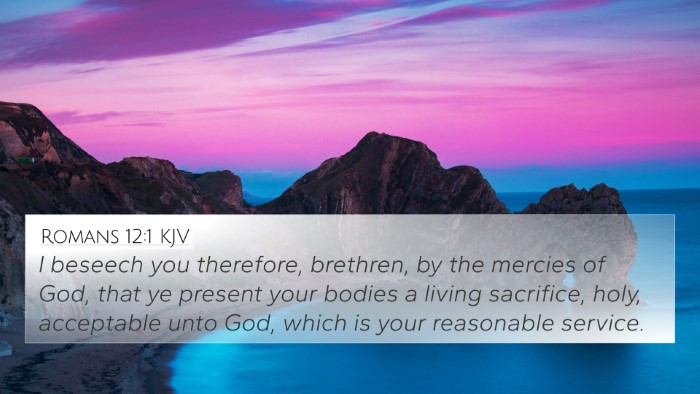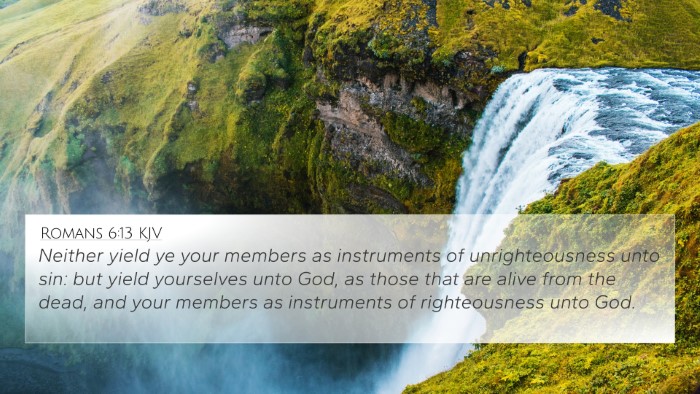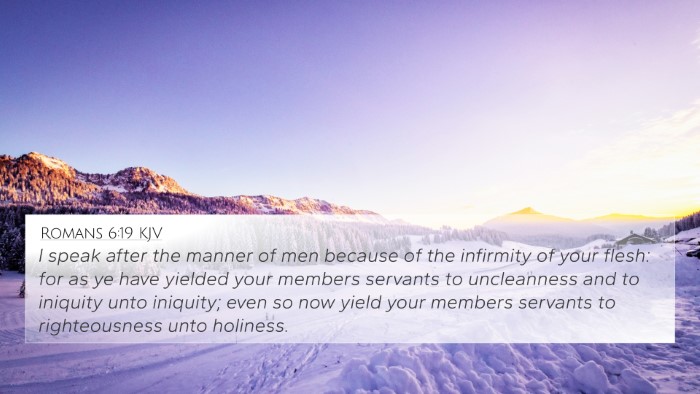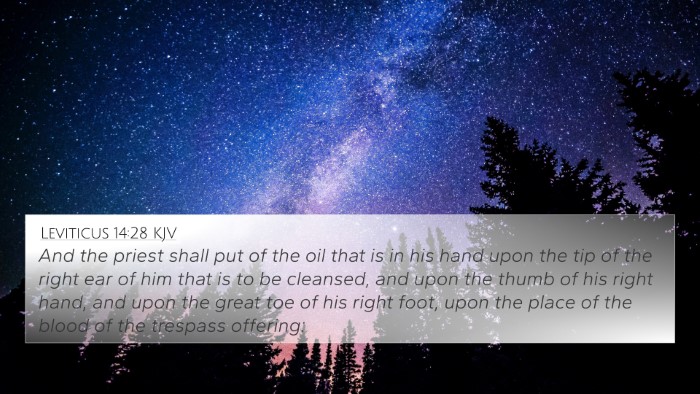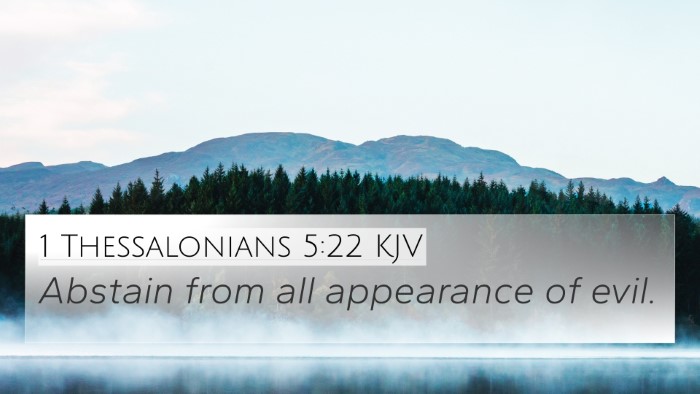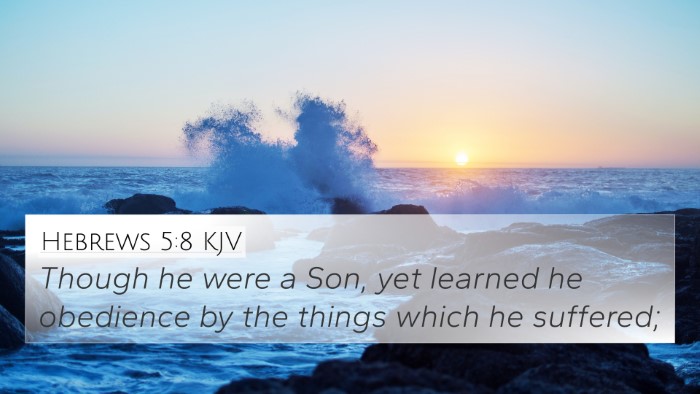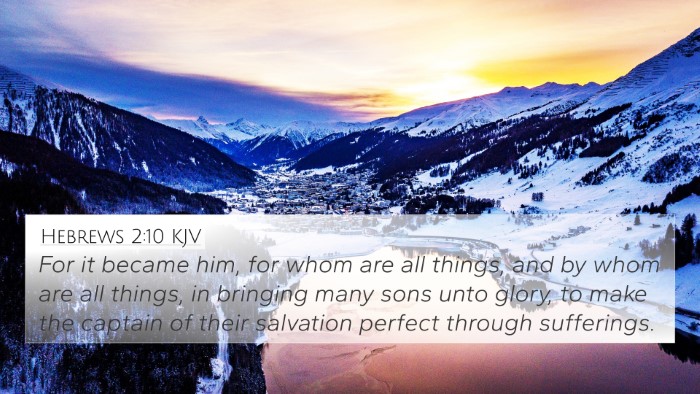Understanding Leviticus 8:23
Leviticus 8:23 states: "And he killed it; and Moses took of the blood of it, and put it upon the tip of Aaron's right ear, and upon the thumb of his right hand, and upon the great toe of his right foot." This verse is part of the ordination ceremony for Aaron and his sons as priests, underscoring the sacred practices involved in their commissioning.
Summary of the Verse
This verse describes a significant ritual action—Moses applying the blood of a sacrifice to the priests. The act serves as an emblem of purification and consecration, emphasizing the seriousness of their ordained responsibilities. Each part of the body on which the blood is applied holds symbolic meaning, relating to the senses and actions of the priests in service to God.
Commentary Insights
Matthew Henry's Commentary
Matthew Henry highlights that the application of blood signifies the necessity of atonement. He notes that the parts of Aaron's body on which the blood was placed represent the consecration of their service—indicating that their hearing (ear), doing (hand), and walking (foot) must be set apart for God's service. This act emphasizes the impact of sin and the need for purification in approaching God.
Albert Barnes' Commentary
Albert Barnes comments on the significance of blood in the Old Testament sacrificial system, noting its role in establishing the covenant. He emphasizes that this ritual of blood application foreshadows the sacrificial work of Christ. Barnes elucidates how each application symbolizes the priest's commitment to obedience and holiness in their ministry.
Adam Clarke's Commentary
Adam Clarke provides additional insights on the meaning of the ceremonial act. He explains that the specific parts of the body symbolize the direction of service—listening to God's word (ear), performing God’s will (hand), and walking in God's ways (foot). Clarke also notes that this rite set the foundation for the priests' duties and their relationship with God.
Symbolic Interpretation
The ritual in Leviticus 8:23 not only signifies the appointment of priests but also establishes a pattern for all believers about the importance of dedicating our faculties—how we listen, act, and move—in alignment with God's will. The priesthood serves as a bridge between God and the community, illustrating the theme of mediation and holiness.
Cross-References for Leviticus 8:23
- Exodus 29:20 - Describes similar sacrificial rites for consecration.
- Hebrews 9:22 - Highlights the necessity of blood for redemption.
- 1 Peter 2:9 - Refers to believers as a royal priesthood.
- Romans 12:1 - Encourages believers to present their bodies as a living sacrifice.
- Isaiah 6:5 - The acknowledgment of sin in the presence of holiness.
- Revelation 1:6 - States that Jesus has made us kings and priests.
- Leviticus 4:25 - Relates to the sin offerings and the role of blood.
Connections Between Bible Verses
Diving deeper into the connections between Bible verses, we find that the themes of sacrifice, service, and sanctification resonate through both the Old and New Testaments. For instance, the purification through blood in Leviticus leads to the ultimate sacrifice of Christ, which fulfills the need for atonement.
Thematic Bible Verse Connections
As readers study Bible verses that relate to each other, it becomes clear that each sacrificial system points toward the greater sacrifice of Jesus. This highlights the importance of understanding the Bible as a cohesive narrative, often explored through cross-referencing Biblical texts.
Using Bible Cross-References
For those engaged in a compelling Bible cross-reference guide, the study of Leviticus 8:23 allows them to uncover layered meanings and connections throughout scripture. Understanding how to find cross-references enhances one's theological insight, promoting a richer understanding of God’s redemptive plan.
Conclusion
In conclusion, Leviticus 8:23 serves as a powerful reminder of the dedication required in serving God, symbolized through the sacred acts of consecration. The insights from commentators like Matthew Henry, Albert Barnes, and Adam Clarke provide rich context that aids believers in grasping the significance of priesthood and sacrifice, inviting them to explore Bible verse parallels throughout the scriptures.
